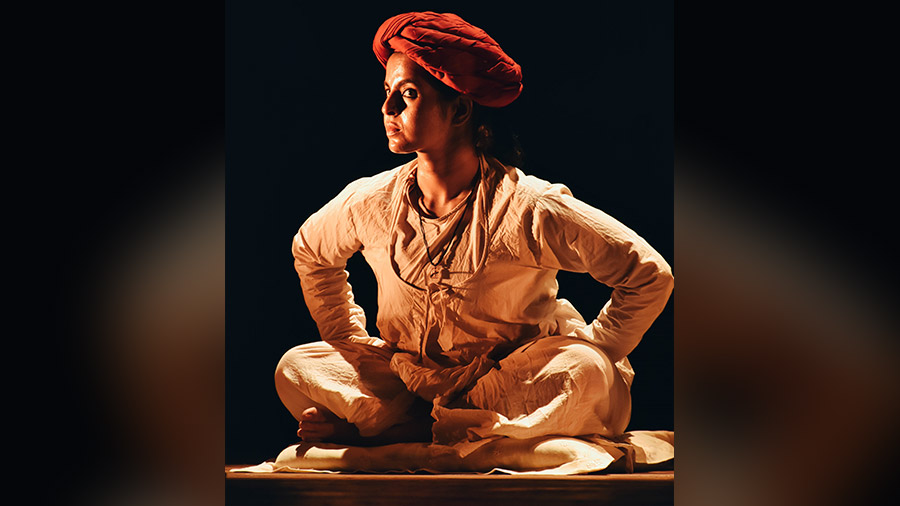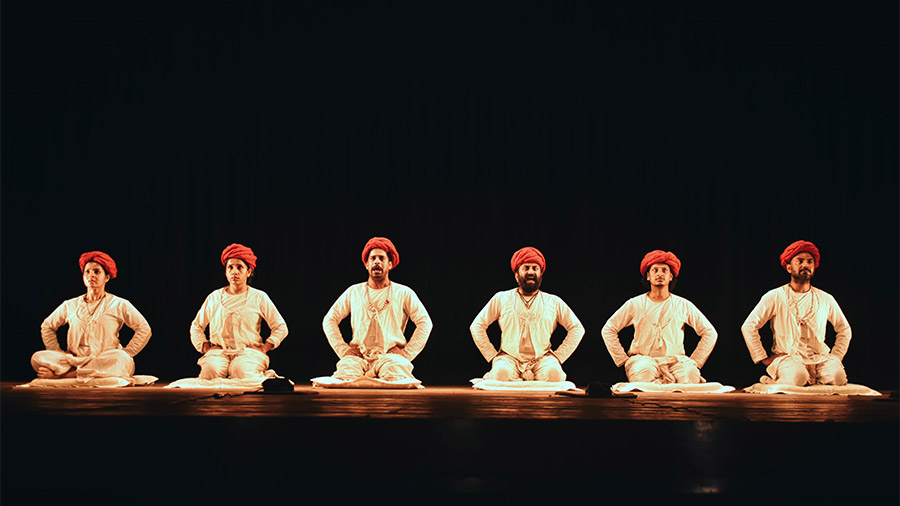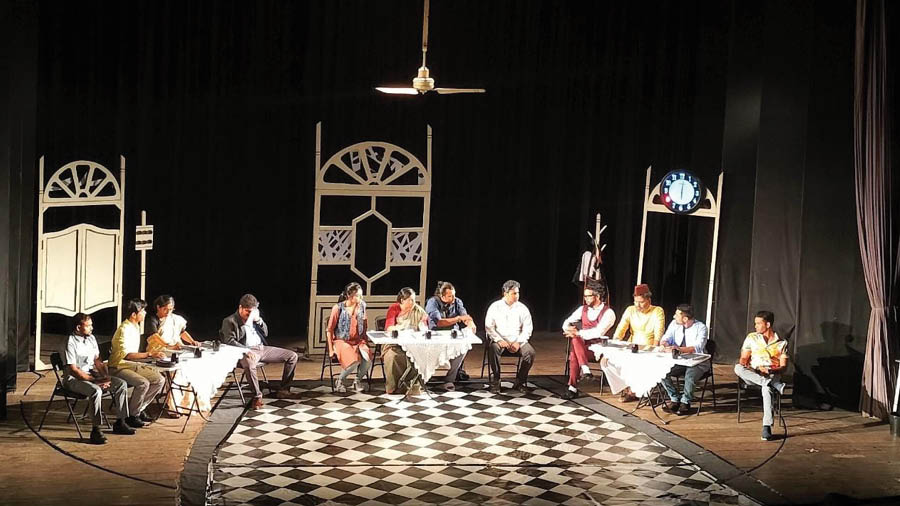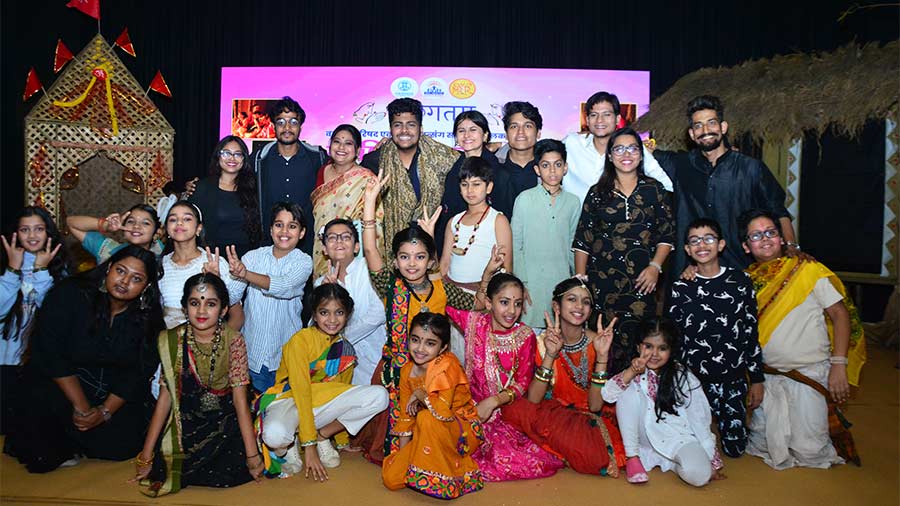A play born during the Covid-19 lockdown and based on the realisation that theatre was suffering and people’s patience to listen had considerably diminished was staged in Kolkata on December 21 as part of Nandikar’s 40th National Theatre Festival.
Hunkaro, winner of the Mahindra Excellence in Theatre Awards, was performed by Ujaagar Dramatic Association from Rajasthan at the Academy of Fine Arts. Before the play, My Kolkata caught up with Ipshita Chakraborty Singh, the founder of Ujaagar.
How ‘Hunkaro’ came to life during the pandemic
“I was very agitated during Covid because I saw theatre just vanish from our lives. But our director, Mohit Takalkar, assured me that we’ll come up with something, and we’ll continue to do theatre. That’s when Hunkaro came to life,” shared Chakraborty Singh. Ujaagar, sensing that the pandemic had turned the world upside down, felt that the format of the good, old plays could not work anymore. They wanted to try something new, something that would hold the attention of the people and make them feel like they were a part of the process of the unfolding of the story.
Hunkaro revolves around three stories, all with the same theme — hope and how human life is a journey of hope. The first story, which is a recurring one in the play, is called Asha Amar Dhan, written by renowned Rajasthani writer Vijaydan Detha. The other two are by members of the group, Chirag Khandelwal’s Vo Chalta Hai and Arvind Charan’s Maai. The play involves Hindi, Marwari, Haryanvi and Awadhi.
The first story is about a farmer who leaves for Mumbai with his second wife and leaves his kids behind in a locked room with little food because they are a burden. While he hopes that someone will save the kids, his wife hopes that they die and the kids hope that their father will soon return. The central question is about which of these hopes survives. On the other hand, “Chirag’s story is based on the migrant worker crisis during Covid and a migrant’s dying wish to go back to his village, while Arvind’s story, written in the manner of a poem, is about two brothers with hopes and dreams who leave their physically challenged mother behind in hopes of a new life,” explained Chakraborty Singh.
‘We don’t move our arms or legs in the play, we don’t even look at each other’

‘Hunkaro’ has no pause button for the audience to feel bored, shared Chakraborty Singh Nandikar
“People are watching too much content, be it on OTT or Instagram. That has reduced the attention span of people. To cater to that, we had to reduce the entire play. Not just the stories but also the movement of the actors. We don’t move our arms or legs in the play, we don’t even look at each other… it’s just about telling the story,” said Chakraborty Singh. Naturally, Hunkaro proved to be a challenging process because theatre is all about movement. But Chakraborty Singh and her group wanted to do something different. In the case of Hunkaro, Chakraborty Singh felt that the best way to do so was to make the play interactive to the extent of having “no pause button for the audience to feel bored”.
“For me, Hunkaro is a highlight for Ujaagar. Before this play, we had tried many times to perform in Kolkata and were rejected. But Hunkaro did it for us. And that is solely because of word of mouth publicity. People who watched the play, loved it and talked about it and that’s why we are here today,” described Chakraborty Singh. She added that Hunkaro has now become more famous than the group itself. In other words, people come to watch Ujaagar because they perform Hunkaro and not the other way around.
“I have performed here in Kolkata before but that was as a part of the National School of Drama (NSD). Now that my group is performing here, it’s a very special moment for me. There’s a tendency for Kolkata audiences to have pin-drop silence during a performance, which can be nerve-wracking for me. You never know if the play has worked until the last moment. I think that if there’s silence among a Kolkata crowd, it means that the play has worked. If they are moving, it means something has gone wrong,” narrated Chakraborty Singh.
Before concluding, Chakraborty Singh had some precious advice for aspiring thespians: “Theatre chooses you, you don’t choose theatre life. So, keep working at it. It might take time but theatre always repays you.”


